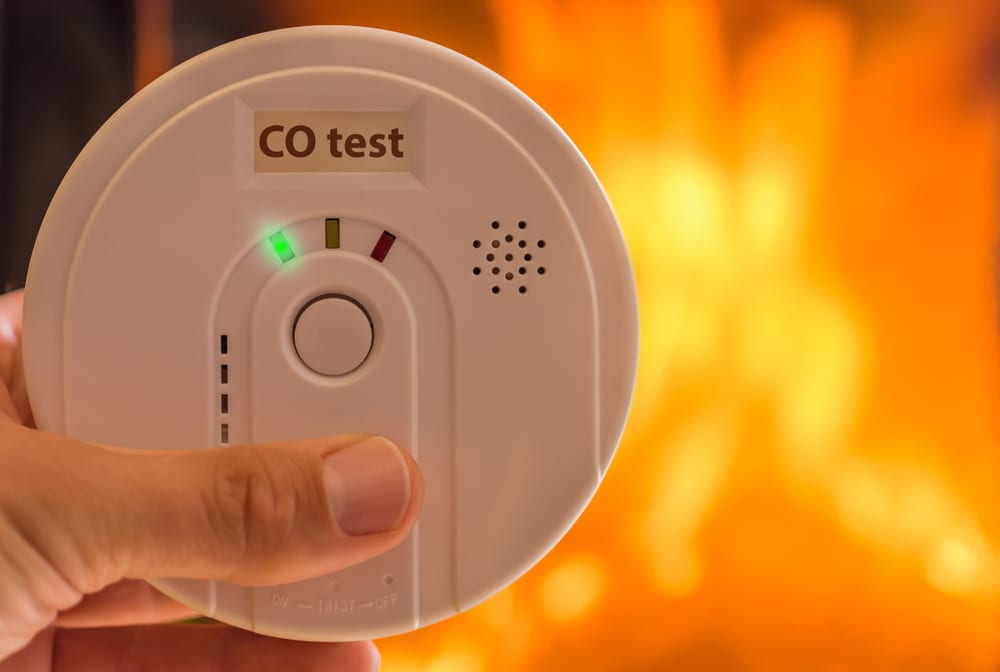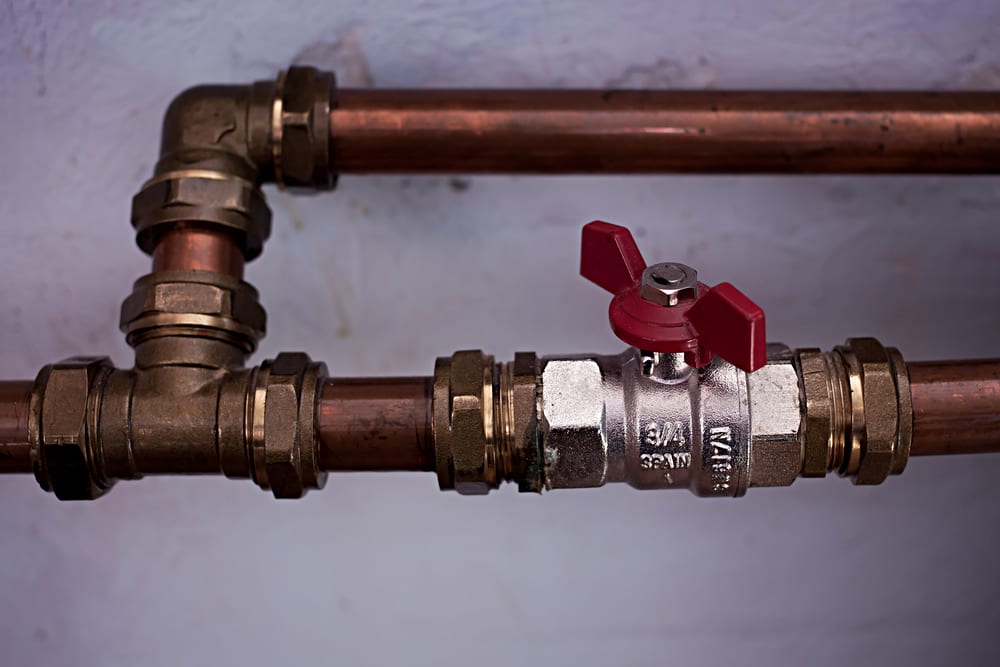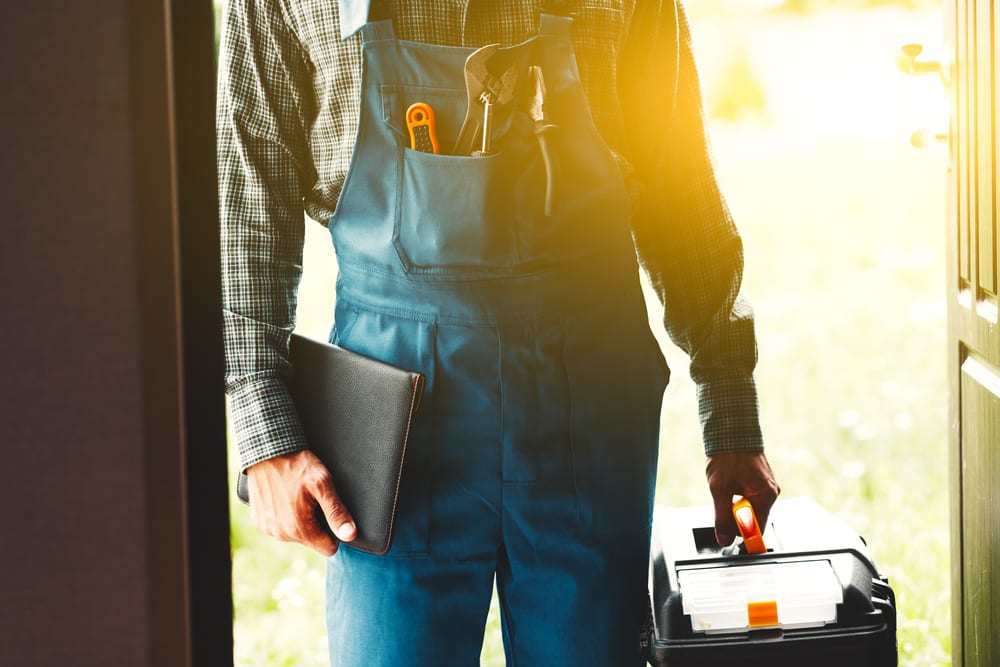
If you’re looking to save money and reduce your environmental impact, natural gas may be the answer. It is a clean, abundant source of heat, allowing you to power your home and appliances while releasing few pollutants. However, as clean as it is, there are still risks associated with the installation of gas pipes in a home. So before you begin using it, make sure to follow these safety tips:
Be Aware of All Appliances That Use Gas
The first step in gas piping safety is to be aware of all natural gas burners on your property. Common gas appliances include:
- Woodless fireplaces
- Furnaces
- Grills
- Water Heaters
- Backup Generators
- Laundry Dryers
- Outdoor Lights
- Pool Heaters
- Space Heaters
Carbon Monoxide Caution
Guarding against carbon monoxide is fundamental to gas piping safety. Although natural gas is generally clean, if its burners are damaged or lack the proper air flow, it can produce carbon monoxide. If a gas pipe leak occurs in your home, this odorless, tasteless, and colorless gas may escape and inhibit your body’s ability to transport oxygen correctly, causing your brain and organs to shut down. Even mild exposure to the gas can render most adults ill within minutes and can be fatal within hours. The following precautions will help you protect yourself and your family from gas piping leaks and carbon monoxide poisoning:
Ways to Protect Your Family From a Gas Piping Leak
Installing a Carbon Monoxide Detector
A carbon monoxide detector resembles a smoke detector and is designed to notify you of natural gas pipe leaks that may be releasing carbon monoxide into your house. Once installed, don’t forget to regularly change your detector’s battery and inspect it to make sure it is working properly.
Inspecting the Vents on Your Appliances
Blocked vents can cause carbon monoxide to accumulate in your house and should thus be repaired immediately. Inspect the chimneys, flues, and vents on all appliances that use natural gas, and report any problems to your natural gas provider.
Check the Ventilation of Your Room
If you have a gas oven, don’t use it to heat your house. Likewise, if you use gas space heaters to warm a room, make sure that the room’s ventilation is working properly to avoid a moderate to severe gas piping leak.
Related Article: What Are the Negative Consequences Of a Slab Leak?
Hire a Professional to Check For Leaks in Your Gas Pipes
Schedule to have all of your natural gas-powered appliances inspected at least once per year to test for gas pipe leaks. A licensed plumber will also check the gas piping connections to each of your appliances to ensure they are secure.
Become Familiar With the Symptoms of a Gas Piping Leak
If all else fails, you can still protect yourself from carbon monoxide poisoning from a gas piping leak by watching out for the symptoms and taking immediate action if you or your loved ones experience them. Early symptoms resemble those of the flu: nausea, headache, dizziness, confusion, exhaustion, and rapid breathing.
If carbon monoxide builds up in your home from a gas piping issue, evacuate the building immediately; the longer you or your loved ones are exposed to the gas, the higher the chance of permanent brain or organ damage. Once you are safe from the gas, call the fire department or 9-1-1, as well as emergency medical services if anyone shows signs of carbon monoxide poisoning.
Guarding Against Natural Gas Pipe Leaks
In addition to carbon monoxide poisoning, gas leaks are a common gas piping safety hazard. If left unattended, leaked natural gas can poison residents or lead to an explosion. Always be on the alert for the following signs of a gas leak:
Visible Signs of a Natural Gas Leak
Gas pipe leaks can cause plants to become discolored and standing water to bubble. They can also produce fog, icy mists, pools of liquid, or freezing along the pipelines where they originate.
Be Aware of the Odor of Sulfurous Gas
Although natural gas is naturally odorless, utilities combine it with a smelly sulfurous gas to make it easier to detect. If you pick up a strong scent of rotten eggs, there’s a good chance you’re near a gas pipe leak.
Become Familiar With the Sounds of a Gas Pipe Leak
Gas leaks produce either a hissing or a roaring sound, depending on the severity of the leak.
As with carbon monoxide, if you believe there to be a gas leak in your home, evacuate the building immediately and call 9-1-1. Also make sure to alert your neighbors, since a gas explosion in your home could threaten theirs. Do not try to locate the source of the leak, and if you do stumble upon it, do not attempt to fix it. Leave that to professionals trained in gas piping safety.
Natural gas leaks also present a danger if they occur outside. If you have reason to believe that an outdoor area has been exposed to leaked natural gas, leave that area immediately without touching your phone or any electrical equipment. Once you’ve reached a safe distance, call 9-1-1 and alert any passersby not to go near the gas.
Related Article: Common Problems With P-Trap Pipes
Do Your Research Prior to Beginning a Home Improvement Project
Even if you only plan to dig a shallow hole on your property, you could end up puncturing an underground pipeline, causing gas leaks and other gas piping safety hazards. Call the local authorities at least two days before you start digging. The authorities will contact local natural gas, electrical, and telephone utilities and will give you a chart marking any hazards in the area where you plan to dig. Once you receive the chart, make sure to follow its instructions to avoid a gas piping leak.
Construction Considerations
If you’re planning a construction project, make sure what you build will not obstruct natural gas pipe lines. Even if your project does not touch the pipe line, it could serve as a barrier to repair teams, preventing them from fixing future gas pipe leaks. All gas pipe lines should be marked by warning signs delineating the pipe lines’ right of way, but just in case, call your local authorities and follow the same procedure that applies to digging. You should also avoid planting any shrubs, trees, or other plants near a natural gas source.
Private Piping
Most homeowners buy their natural gas from gas pipe lines that supply their cities. If you live in a sparsely-populated area, however, it may not be possible to buy natural gas from a broader source, in which case you’ll have to have your utility build a pipeline directly to your house. If you do this, you’ll be responsible for inspecting and repairing your gas pipe, as well as for warning your neighbors of its presence. Never buy a customer-owned line unless you’re sure you can keep it safe.
Plumbing Services Near You in Florida
Looking to install, repair, or upgrade natural gas pipes in your home? Give our technicians a call by phone at 904-217-5694 or book an appointment on our website. In addition to gas pipes, our team also offers maintenance and replacement services for water lines behind your walls or in the ground. Our team of licensed plumbers provide fast, affordable, and trustworthy plumbing repair and installation services to homes in Jacksonville and other areas of Florida.
Safe & Reliable Gas Line Repair Services in Jacksonville, Florida
Call Us: 904-217-5694
Do you have a gas line leak in your home? We offer gas line repair and installation services in Jacksonville, Florida. Book an appointment




